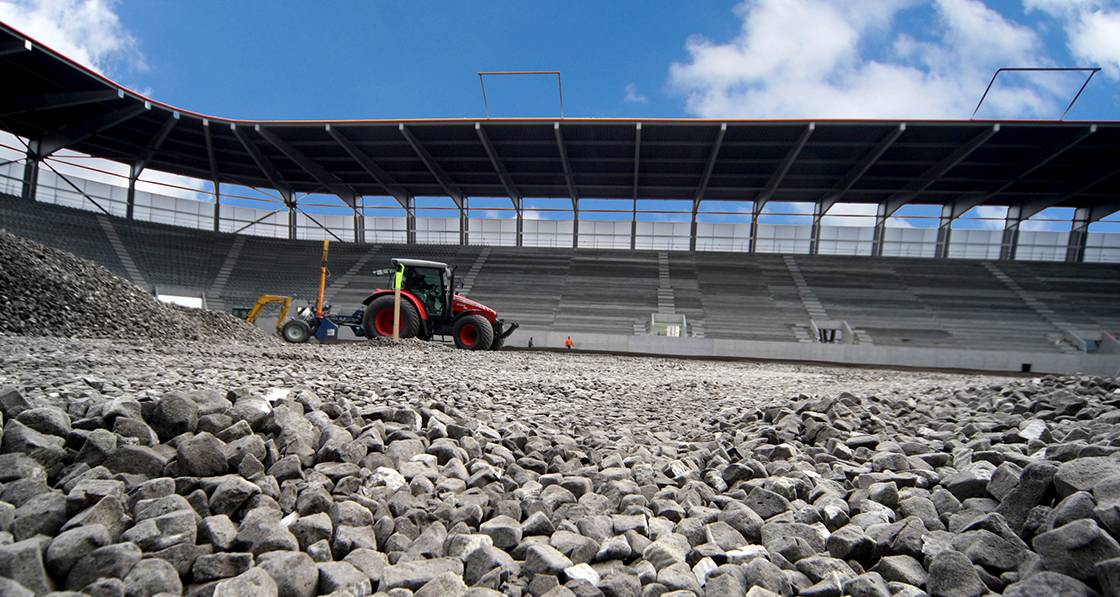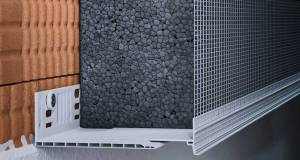
- Marketplace
- Posted
Foam glass a sustainable aggregate alternative — Mike Wye & Associates
Foam glass gravel provides a sustainable alternative to traditional aggregates and hardcores, according to Mike Wye Ltd & Associates, the leading supplier of traditional and sustainable building materials.
This article was originally published in issue 28 of Passive House Plus magazine. Want immediate access to all back issues and exclusive extra content? Click here to subscribe for as little as €10, or click here to receive the next issue free of charge
Foam glass gravel (or aggregate) has been used widely across mainland Europe for a couple of decades but is a relatively new construction material to the UK market.
“It is a lightweight material made from 100% recycled glass,” explained Carl Sanger, Geocell sales executive at Mike Wye & Associates.
“Ninety per cent of glass used in the production of foam glass comes from bottles and other coloured glass. The other 10% is clean, sheet glass, mainly from windows.”
“Geocell foam glass is exceptionally stable, durable, safe to handle and more importantly an environmentallyfriendly building material.” Sanger outlined some of the key characteristics of the material:
- Insulation: no extra frost protection is necessary, and the complete omission of other floor sub-components is possible in thermal bridge-free construction (design value 0.08 W/mK).
- Load-bearing: the cellular structure and extremely high specific surface of foam glass facilitate an exceptional pressure load (compressive strength design value of 275 kN/m2).
- Stabilising: the improvement of the load-bearing capacity of unstable terrain can replace measures such as pillar foundations and consolidation fills.
- Free draining and non-capillary: the closed-cell surface of foam glass prevents soil moisture from entering the structure.
- Inert: it meets the highest standards for inert building materials. Leaching tests did not show any resulting adverse environmental effects whatsoever.
- Lightweight: the bulk weight of GEOCELL foam glass is only 150 kg/m³. Standard hardcore weighs approximately 20 times more.
- Fire resistant: non-combustible Class A1 with a melting point above 700C.
“These beneficial properties explain why foam glass is being used increasingly in the UK for the renovation of historic buildings, in new build projects, and across various civil engineering applications,” he said.
“Geocell foam glass is extremely light and allows for dry and extremely simple installation.” The system is already registered with Local Authority Building Control (LABC).
Sanger added: “The UK glass industry has the ability to recycle millions of tonnes of glass each year. Glass can also be recycled indefinitely without compromising quality. Using virgin materials in construction can only be sustained for a limited period and construction companies now need to show compliance in reducing CO2 emissions for all new buildings.”







